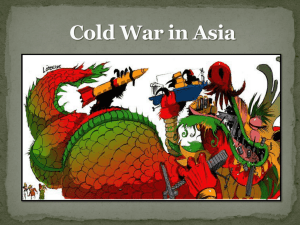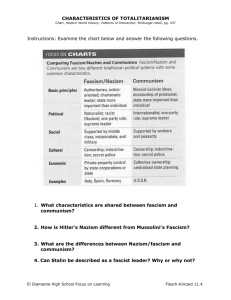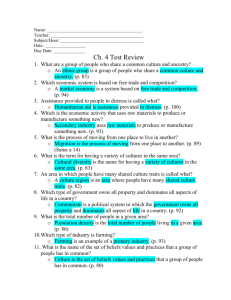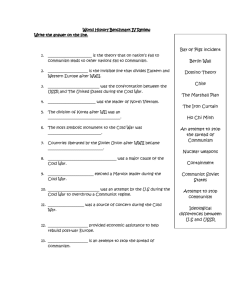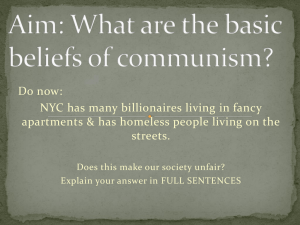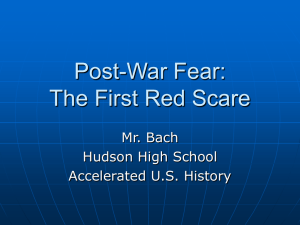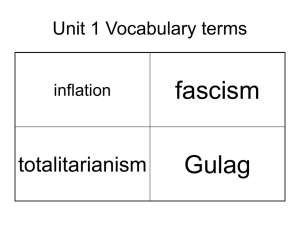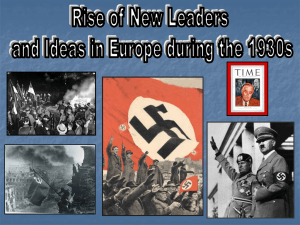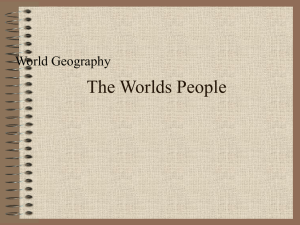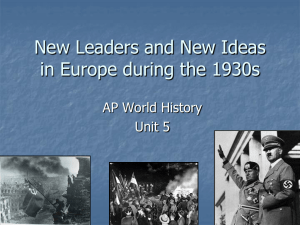Political Ideologies of WWII
advertisement
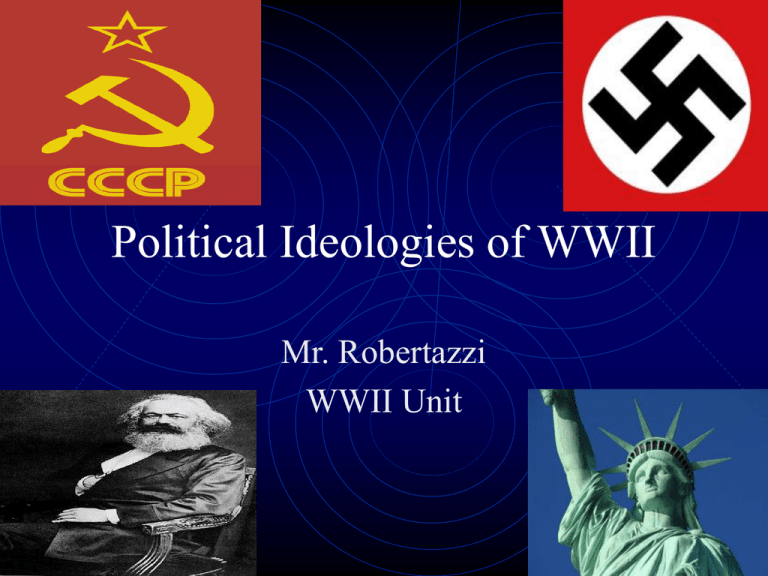
Political Ideologies of WWII Mr. Robertazzi WWII Unit Questions to Consider • What is the job of government? • Could human beings sustain order without government? • Are there different philosophies on governing? Which do you favor and why? What is a Political Ideology?? • Explains how society should work, and offers some political and cultural blueprint for a certain social order. • How to allocate power and to what ends it should be used. Includes an economic system. Fighting Over Ideas Throughout history armed conflicts have occurred because of different opinions about government and theories of governing. In your opinion why is this a common occurrence? Can you think of an example of a time when this has happened? Why would the United States participate in an armed conflict to defend a governmental principle? FASCISM • Italy - Mussolini • Totalitarian/Authoritarian, single • • • • • • party state “The Far Right” Society more important than the individual Centralization of power under a dictator, did not desire equality Strict govt. control of the economy“The Corporate State”, economic policies where aimed at increasing state power and suppressing unions Suppression of opposition through terror and censorship Nationalism and Racial superiority COMMUNISM: The Theory/Marxism • Karl Marx • Economic System & • • • • Political Ideology Property is commonly controlled Revolution of the proletariat (worker) to seize control of the means of production International movement Communist Manifesto 2/1848 w/ Friedrich Engels Marxian Communism "Pure communism" in the Marxian sense refers to a classless, stateless and oppression-free society where decisions on what to produce and what policies to pursue are made democratically, allowing every member of society to participate in the decision-making process in both the political and economic spheres of life COMMUNISM: In the USSR • Installed in 1914 • • • • Bolshevik revolution: Lenin Stalin State plans and controls the economy, collectivism Vast Industrialization Dominated all aspects of life, murdered political opponents NAZISM • National Socialist German • • • • Worker’s Party Hitler – Germany Fascism extreme nationalism, racism, eugenics, totalitarianism, homophobia, anti-Semitism, anti-communism, and limits to freedom of religion The rejection of democracy, and consequently abolishing political parties, labor unions, and free press What is Eugenics? • Its advocates regarded it as a social philosophy for the improvement of human hereditary traits through the promotion of higher reproduction of certain people and traits, and the reduction of reproduction of other people and traits. Euthanasia?? CAPITALIST/DEMOCRACY • US – FDR/Truman • UK – Chamberlain/Churchill • Private ownership of • • • • business and property, Adam Smith’s A Wealth of Nations “Survival of the fittest” Liaise faire, free market, limited welfare system Free elections, republic style protections for individual liberty, a separation of powers, and a layered federal structure
